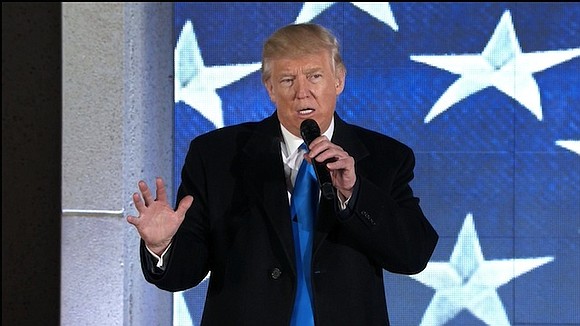How Donald Trump's Tweets Are Helping To Fight His Travel Ban
CNN/Stylemagazine.com Newswire | 2/15/2017, 4:15 p.m.
WASHINGTON (CNN) -- Justice Department attorney Michelle Bennett learned firsthand Monday what it feels like to have a tweet written by the President of the United States used against her in federal court.
Bennett was asking district court Judge James Robart to temporarily postpone proceedings concerning the President Donald Trump's executive order on immigration while a federal appeals court was still considering the issue.
In response, Robart brought up Trump's tweet sent after the appeals court ruled against the White House last week. "SEE YOU IN COURT, THE SECURITY OF OUR NATION IS AT STAKE!" Trump tweeted in all caps.
"Counsel, I'm a little surprised," Robart told Bennett as she made her request for postponement, "since the President said he wanted to 'see you in Court'....Are you confident that's the argument you want to make?"
"Yes, your honor" Bennett said. Robart ultimately ruled against her.
To be sure, Robart's comment was lighthearted, but it reflects the facts that judges are not immune to a series of tweets the President has launched about the case, often criticizing the judiciary and particular judges. Courts are also looking at other statements Trump has made that could directly impact the defense of his travel ban. Indeed, less than four weeks into his administration Trump's outbursts might serve not only to complicate the arguments made by government lawyers but also jeopardize the future of his executive order on immigration.
A key part of the argument against the travel ban, for instance, is that it discriminates on the basis of religion. It is something the government lawyers have flatly rejected, but the courts -- so far -- are taking seriously.
"To be clear, this is not a Muslim ban, as the media is falsely reporting," Trump wrote in a statement last month. "This is not about religion---this is about terror and keeping our country safe," he said.
But in almost every brief filed, the challengers have carefully detailed the comments Trump made during the campaign and afterwards that they argue prove that there was an intent to discriminate.
And the argument seems to be resonating with some judges -- although the challenge is still at a preliminary stage.
For mor information go to http://www.cnn.com










